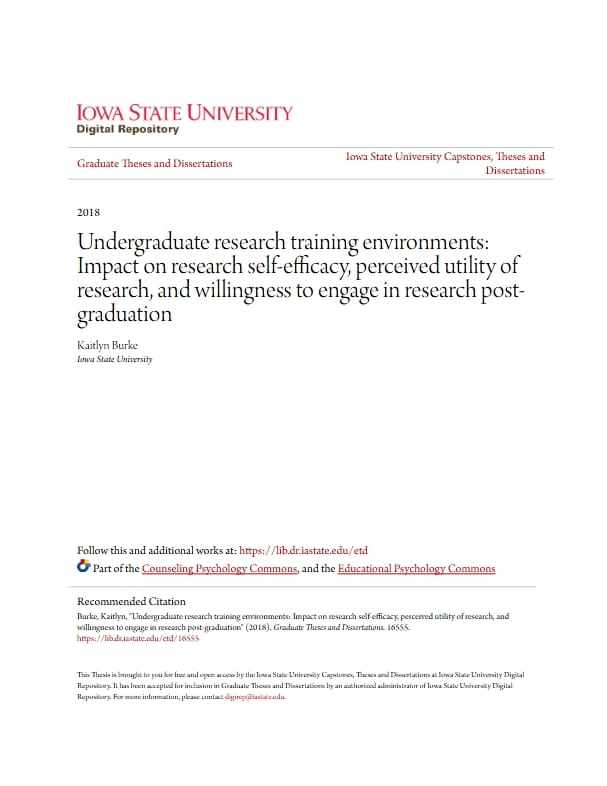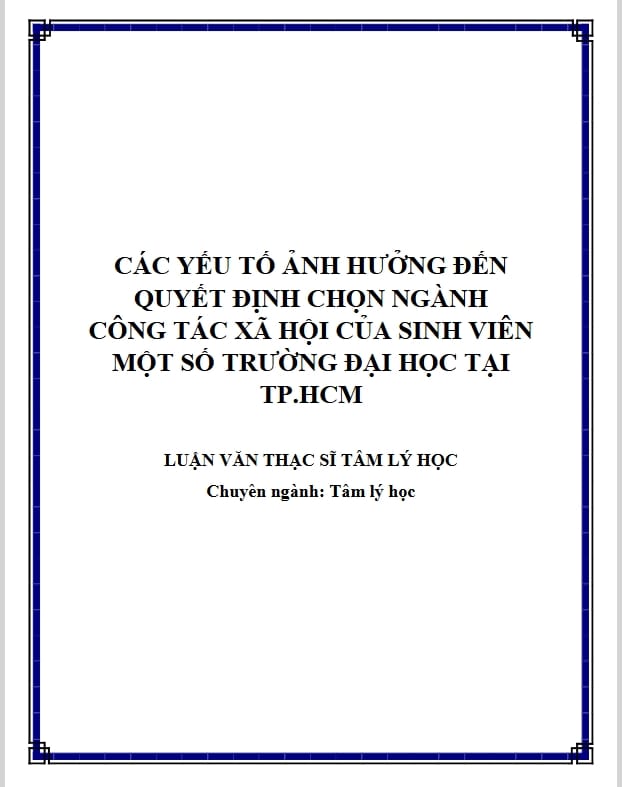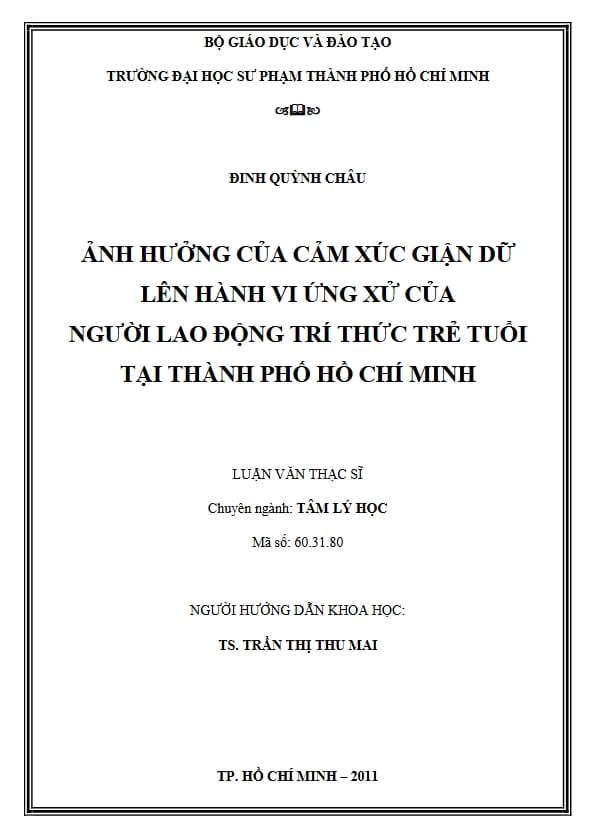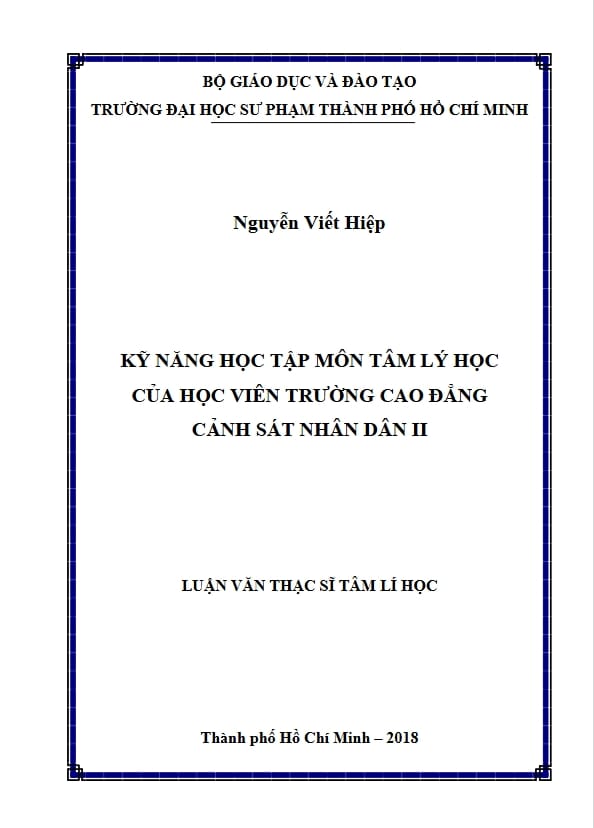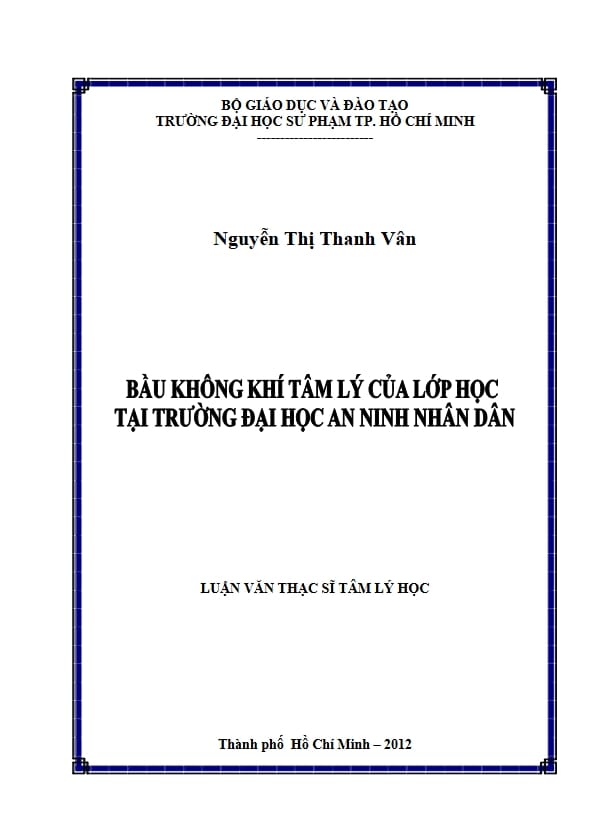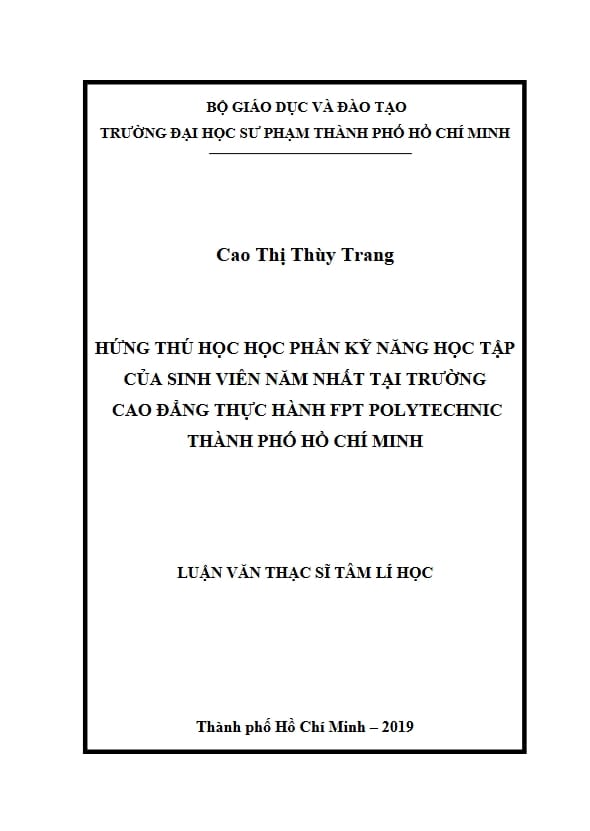TABLE OF CONTENTS
LIST OF FIGURES ……………………………………………………………………………………… iv
LIST OF TABLES ……………………………………………………………………………………….. v
ABSTRACT………………………………. …………………………………………………….. vi
CHAPTER 1. INTRODUCTION ……………………………………………………………….. 1
CHAPTER 2. LITERATURE REVIEW ……………………………………………………… 5
Research Training in Psychology ……………………………………………………………… 5
Social Cognitive Theory ………………………………………………………………………….. 8
Social Cognitive Career Theory………………………………………………………………… 10
Research Self-Efficacy…………………………………………………………………………….. 15
Research Training Environments ………………………………………………………………. 24
The Undergraduate Research Training
Environment (URTE)………………………………………………………………………………. 31
Measurement of RTEs …………………………………………………………………………….. 38
Other Outcomes Associated with
Research Self-Efficacy and the RTE …………………………………………………………. 41
The Current Study …………………………………………………………………………………… 47
CHAPTER 3. METHOD …………………………………………………………………………… 50
Procedure …………………………………………………………………………………………… 50
Participants …………………………………………………………………………………………… 51
Measures …………………………………………………………………………………………… 52
Research Hypotheses ………………………………………………………………………………. 56
CHAPTER 4. RESULTS …………………………………………………………………………… 58
CHAPTER 5. DISCUSSION ……………………………………………………………………… 73
Summary of Findings ………………………………………………………………………………. 74
The Importance of Research Self-Efficacy …………………………………………………. 74
The Importance of Willingness
to Use Research Skills …………………………………………………………………………….. 75
The Importance of the Utility
of Research Skills …………………………………………………………………………………… 76
The Role of RTEs …………………………………………………………………………………… 77
Implications for Future Research ………………………………………………………………. 78
Implications for Undergraduate
Training of Psychology Students ………………………………………………………………. 80
Limitations …………………………………………………………………………………………… 81
Conclusions …………………………………………………………………………………………… 84
REFERENCES …………………………………………………………………………………………… 85
APPENDIX A: INITIAL EMAIL: CALL FOR PARTICIPANTS ……………………… 92
APPENDIX B : FOLLOW-UP EMAIL: CALL FOR PARTICIPANTS ……………… 93
APPENDIX C: INFORMED CONSENT DOCUMENT …………………………………… 94
APPENDIX D : DEMOGRAPHICS AND ACADEMIC INFORMATION …………. 97
APPENDIX E : REVISED RESEARCH TRAINING ENVIRONMENT
SCALE – SHORT FORM (RTES-R-S) …………………………………… 98
APPENDIX F : RESEARCH SELF-EFFICACY SCALE (RSES)……………………… 100
APPENDIX G : UTILITY OF RESEARCH IN FUTURE CAREERS (URFC) ……. 102
APPENDIX H : REVISED UTILITY OF RESEARCH
IN FUTURE CAREERS (URFC) ……………………………………………. 103
APPENDIX I : WILLINGNESS TO USE RESEARCH
IN FUTURE CAREERS (WURFC) ……………………………………….. 104
APPENDIX J : REVISED WILLINGNESS TO USE RESEARCH
IN FUTURE CAREERS (WURFC) ……………………………………….. 105
APPENDIX K: INSTRUCTIONS FOR ENTRY INTO RAFFLE
FOR AMAZON GIFT CARD ………………………………………………… 106
APPENDIX L: INSTITUTIONAL REVIEW BOARD
APPROVAL FORM ……………………………………………………………… 108

